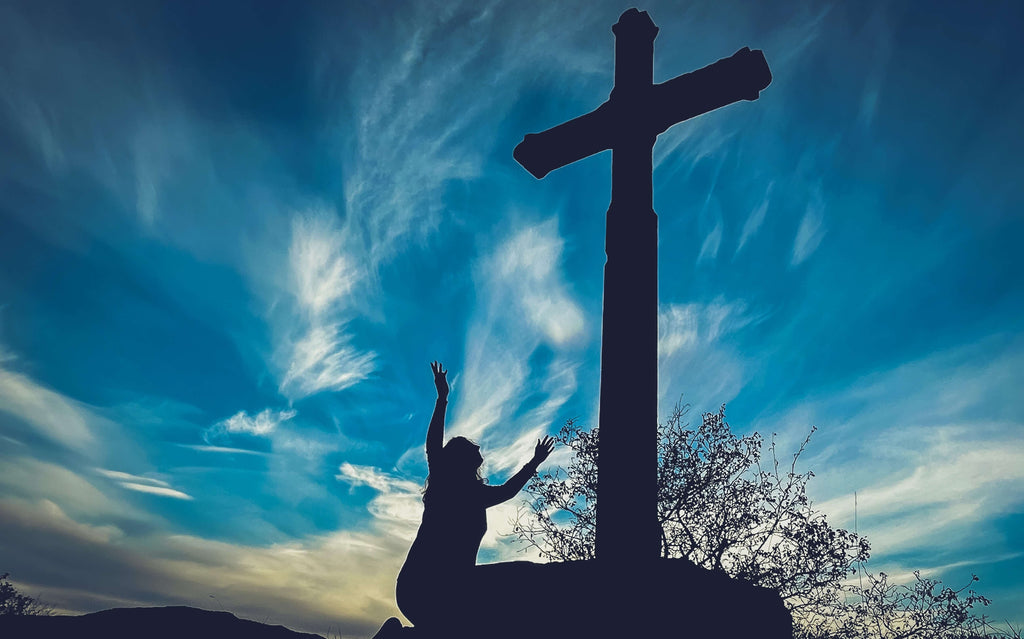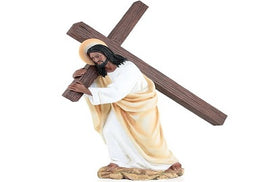15 Powerful Examples of Spiritual Revival in the Bible

15 Powerful Examples of Spiritual Revival in the Bible
Table of Contents
- Jonah's Preaching in Nineveh (Jonah 3:1–10): Reviving a Nation
- Elijah on Mount Carmel (1 Kings 18:20–40): Reviving the nation of Israel
- Hezekiah's Reforms (2 Chronicles 29–31): Revival From Evil Predecessors
- Josiah's Reforms (2 Kings 22–23): Revival through the law of God
- Ezra's Teaching (Nehemiah 8): Revival after an exile
- The Day of Pentecost (Acts 2): Revival through the Holy Spirit
- Peter's Sermon at Solomon's Portico (Acts 3–4): Personal Revival
- Samaritan Revival (Acts 8:4–25): Revival through transformed communities
- Conversion of Saul (Acts 9): The Revival that changed the church
- Cornelius' Household (Acts 10): The Gentile Revival
- Lydia's Conversion (Acts 16:14–15): A Household Revival
- Thessalonian Church (1 Thessalonians 1): Revival of a Pagan Community
- Ephesian Believers (Acts 19:1–20): Mass Revival
- Revival in Antioch (Acts 11:19–26): Ethnic Revival
- The Raising of Lazarus (John 11): Revival After a Miracle
The New and Old Testament pages are filled with stories of remarkable spiritual awakenings and revivals that have shaped history and transformed the lives of individuals and entire communities.
These narratives offer powerful insights into the nature of faith, the importance of repentance, and the inexhaustible grace of God.
From the revival in Nineveh following Jonah's reluctant preaching to the outpouring of the Holy Spirit at Pentecost, these stories remind us that God's redemptive power can bring revival even in the most challenging circumstances.
Here are 15 examples of the subject of revival in the Bible.
Jonah's Preaching in Nineveh (Jonah 3:1–10): Reviving a Nation
In the Word of God, we read about Jonah's reluctant preaching, which led to a remarkable revival in the wicked city of Nineveh.
The people repented, and God spared the city from destruction.
Jonah's preaching of true revival in Nineveh is a remarkable and transformative biblical account.
Initially resistant to God's call, Jonah attempted to flee from his divine mission, only to be swallowed by a great fish and later vomited onto the shores of Nineveh.
He reluctantly delivered a message of impending judgment there, calling the city to repentance.
To his astonishment, the people of Nineveh, from the king to the lowest citizen, responded with genuine remorse, fasting, and sackcloth, symbolizing their repentance.
Seeing their sincere change of heart, God showed compassion and relented from His planned destruction, sparing the city.
Jonah's story is a testament to the profound impact of genuine repentance and the possibility of revival even in the unlikeliest circumstances, demonstrating God's boundless mercy and willingness to forgive those who turn back to Him in humility and sincerity.
Where is God sending you? Don't hide from God.
Elijah on Mount Carmel (1 Kings 18:20–40): Reviving the nation of Israel
Elijah's showdown with the prophets of Baal resulted in the greatest revival among God’s people, as they returned to worshiping the one true God.
Elijah's dramatic showdown with the prophets of Baal on Mount Carmel is a pivotal moment in the history of Israel, marked by a revival of faith among the Israelites.
Amid a severe drought and spiritual apostasy, Elijah challenged the prophets of the false god Baal to call down fire from their deity.
As the prophets failed and were humbled, Elijah called upon the one true God of Israel, who responded with consuming fire, demonstrating His supreme power.
Witnessing this undeniable miracle, the Israelites fell to their knees in repentance, declaring their faith in the Lord.
This revival moment has led to a resurgence of belief in their ancestors' God, breaking idolatry's grip and renewing their commitment to worshiping the one true living God.
Elijah's bold stand on Mount Carmel rekindled the spiritual fervor of the Israelites, emphasizing the enduring truth that faith in God can be rekindled, even amid the darkest times, through His miraculous intervention.
God is asking you to do something great. Your bravery might inspire a nation to stand up for God as well.
Hezekiah's Reforms (2 Chronicles 29–31): Revival From Evil Predecessors
King Hezekiah initiated a revival in Judah by restoring temple worship and leading the people in repentance and obedience to God's commandments.
Hezekiah ascended to the throne of Judah at a time of spiritual decay.
His predecessors were bad parents; King Ahaz and Abijah allowed the worship of false gods and even desecrated the temple by altering its sacred practices.
The people had strayed far from the Lord's ways, leading to a life full of wicked ways.
Hezekiah's commitment to God's ways ignited a nationwide revival. The people of Judah responded with repentance and a renewed devotion to the Lord.
The Passover celebration, in particular, symbolized the nation's return to its spiritual roots.
People from both Judah and Israel gathered in Jerusalem to observe the feast, signifying unity and a rekindled commitment to God.
The pinnacle of Hezekiah's revival was the complete restoration of temple worship.
He reinstated the daily sacrifices, tithes, and offerings, ensuring that the Lord's house was again a center of genuine worship.
The Levites and priests were reorganized, and the people faithfully contributed to the temple's maintenance.
Evil parents might have raised you. That does not define you. God will use you greatly if you are willing to be used.
Josiah's Reforms (2 Kings 22–23): Revival through the law of God
King Josiah's discovery of the Book of the Law led to a nationwide revival in Judah, as he implemented comprehensive religious reforms and renewed the covenant with God.
Josiah, one of the youngest kings to reign over Judah, left an indelible mark on the nation through his sweeping reforms, which ignited a powerful revival.
Judah was steeped in idolatry and disobedience to God's law when he ascended the throne.
However, upon hearing that the law of the Lord had been discovered in the temple, Josiah was profoundly moved.
He initiated a comprehensive campaign to restore the worship of the one true God.
Josiah purged the land of idolatrous practices, destroyed pagan altars, and reinstated the observance of Passover.
His sincere commitment to obeying God's commands and purifying the nation's religious practices inspired the people to follow suit.
The revival under Josiah's leadership brought Judah back into alignment with God's covenant.
It served as a testament to the power of wholehearted devotion and obedience to revitalize a spiritually wayward nation.
This was a powerful moment in the history of the Jewish people. God may be calling you to remind others of the law of the Lord.
Ezra's Teaching (Nehemiah 8): Revival after an exile
When Ezra, the scribe, read the Law to the returning exiles, it sparked a revival as they wept, repented, and recommitted themselves to God's commands.
Ezra's pivotal role in reading the Law to the returning exiles from Babylon played a significant part in sparking a revival among the people of Israel.
These families had overcome trauma and probably struggled with anxiety and guilt.
As they gathered in Jerusalem after years of captivity, their connection to God's Word had waned.
Ezra, a scribe and priest, recognized the need to reestablish their covenant relationship with God by reacquainting them with His commandments.
Standing in the Holy Place before a large assembly, he read the Law aloud, explaining its meaning and application.
The impact was profound, as the people were moved to tears, overwhelmed by the realization of their disobedience.
Ezra's act of faith and obedience not only rekindled a deep reverence for God's Word but catalyzed national repentance and revival.
It reminds us that the faithful proclamation and explanation of God's Word can have a transformative effect, renewing hearts and inspiring a return to God's ways.
The Day of Pentecost (Acts 2): Revival through the Holy Spirit
On the Day of Pentecost, the Holy Spirit descended upon the disciples while they met in the upper room.
Resulting in a great revival as thousands believed in Jesus and were baptized.
The Day of Pentecost marks a momentous event in the early history of Christianity, characterized by a remarkable outpouring of the Spirit of God and an extraordinary revival.
As the disciples gathered in Jerusalem, the Holy Spirit descended upon them in the form of tongues of fire, empowering them to speak in languages they did not know.
This divine intervention drew a crowd of bewildered onlookers from various nations, all hearing the disciples declare the mighty works of a Holy God in their languages.
Under the guidance of the apostle Peter, who boldly proclaimed the gospel message, thousands were convicted of their sins and embraced faith in Jesus Christ.
The result was a revival of unparalleled magnitude, with three thousand souls being baptized that day.
The Day of Pentecost is a vivid illustration of the transformative power of the Holy Spirit, igniting a revival that launched the early Christian church and inspired believers to proclaim the message of salvation to the world boldly.
The same Holy Spirit is available for you today.
Peter's Sermon at Solomon's Portico (Acts 3–4): Personal Revival
Peter's bold preaching and miraculous healings led to a personal revival among the people in Jerusalem, with many turning to Christ.
Peter's sermon to a large group of people at Solomon's Portico, recorded in the book of Acts, was a pivotal moment that triggered a profound revival among the people of Jerusalem and laid the foundation for the early Christian church.
Following the miraculous healing of a beggar at the temple gate, a crowd gathered, allowing Peter to preach the gospel of the kingdom.
He boldly proclaimed Jesus the Messiah and called the people to repentance and faith.
The impact was immediate and powerful. Many hearts were convicted, and about five thousand people believed in Jesus.
This revival created a vibrant and growing community of believers, forming the early Christian church in Jerusalem.
Peter's sermon exemplifies the transformative influence of the gospel message and the Holy Spirit, catalyzing a revival that would eventually spread throughout the world and shape the course of Christianity for centuries.
A revival of a crowd is many people all encountering a personal revival.
Samaritan Revival (Acts 8:4–25): Revival through transformed communities
After The Apostle Philip's preaching in Samaria, there was a great revival as many believed, were baptized, and received the Holy Spirit.
The Samaritan revival, sparked by Philip's preaching in Acts 8, is a remarkable testament to the gospel's transformative power and the Holy Spirit.
Philip, one of the early Christian disciples, traveled to Samaria and proclaimed the good news of the Lord Jesus Christ.
His message was accompanied by signs and miracles, capturing the attention of the Samaritan people steeped in spiritual darkness.
A great revival swept through the region as people heard and witnessed the gospel's truth.
Many Samaritans believed in Jesus, were baptized, and experienced the joy of salvation.
Philip's ministry not only brought the Samaritans into the fold of Christianity but also demonstrated the inclusiveness of God's kingdom, breaking down barriers and uniting believers from diverse backgrounds.
The Samaritan revival is a powerful reminder that the gospel can transform hearts and communities, breaking cultural divides and bringing people together in faith and unity.
Conversion of Saul (Acts 9): The Revival that changed the church
Saul's dramatic encounter with Jesus on the road to Damascus led to his conversion and a subsequent revival as he preached the gospel.
This was a milestone in the history of the church.
Saul's conversion on the road to Damascus, documented in Acts 9, is a pivotal moment in Christian history that gave rise to a significant revival.
As Saul, a zealous persecutor of early Christians, encountered the risen Jesus Christ, he was dramatically transformed.
Blinded and humbled by the encounter, Saul underwent a profound conversion experience—conviction of sin and repentance.
Ananias, a disciple of Jesus, played a crucial role in Saul's restoration, and he received his sight.
Saul, now known as the apostle Paul, became a fervent advocate for the faith he once persecuted.
His conversion ignited a revival as he began preaching the gospel, planting churches, and writing numerous letters that would become part of the New Testament.
Paul's zeal and passion for Christ were contagious, leading countless individuals to embrace Christianity and experience spiritual renewal.
His remarkable journey from persecutor to apostle serves as a vivid testament to the life-transforming power of the gospel and the potential for revival, even in the most unlikely of hearts.
This is an example of a second chance. Every Christian's life is full of second chances. Use yours to spread the Good News of Jesus Christ.
Cornelius' Household (Acts 10): The Gentile Revival
Peter's visit to Cornelius' household marked a revival among the Gentiles, who received the Holy Spirit and were baptized.
Peter's visit to Cornelius' household, as recorded in Acts 10, marked a pivotal moment in the early church that led to a significant revival.
Cornelius, a devout Gentile, received a vision from God instructing him to send for Peter.
Meanwhile, through his divine revelation, Peter realized God had called him to embrace the Gentiles with the gospel.
As Peter entered Cornelius' home, he preached the message of Jesus Christ and the forgiveness of sins.
To the astonishment of all present, the Holy Spirit descended upon Cornelius and his household, as evidenced by their speaking tongues and praising God. Cornelius had a clean heart!
This transformative event shattered the boundaries between Jew and Gentile, initiating a revival among the Gentile believers.
Peter's recognition that God shows no partiality and his obedience to share the gospel with the Gentiles laid the foundation for the expansion of Christianity beyond its Jewish roots.
The revival at Cornelius' household exemplifies the inclusive nature of God's kingdom and the gospel's power to unite diverse people in faith and unity.
This was an important part of the biblical history of the church. This is when the church came to the Gentiles.
Lydia's Conversion (Acts 16:14–15): A Household Revival
Lydia's conversion in Philippi initiated a revival in her household and the surrounding area as they embraced the gospel.
Lydia's conversion in Acts 16 is a beautiful example of how one person's encounter with the gospel can lead to a ripple effect of revival within their household.
As Paul and Silas preached by the riverside in Philippi, Lydia, a devout woman of business, responded to the message with an open heart.
The Lord opened her heart to believe, and she and her household were baptized.
Lydia's newfound faith transformed her life and ignited a revival within her household.
Her family, influenced by her genuine conversion and devotion, followed in her footsteps, embracing the message of Jesus Christ.
This revival in Lydia's household highlights the powerful influence of a sincere and receptive heart in spreading the gospel and inspiring those closest to us to seek and experience the transformative power of faith.
A revival in your household is the most important revival you should be praying for.
Thessalonian Church (1 Thessalonians 1): Revival of a Pagan Community
Paul commended the Thessalonians for their faith and zeal, noting that their conversion sparked a revival in Macedonia and Achaia.
The revival in Macedonia, as celebrated in 1 Thessalonians chapter 1, is a powerful testament to the transformative impact of the gospel in the ancient world.
Paul, Silas, and Timothy were all young men who had shared the message of Christ in the region, and their efforts bore remarkable fruit.
Once entrenched in paganism and idol worship, the Thessalonian believers fervently turned to faith in Jesus.
Their conversion ignited a revival characterized by their genuine faith, love, and hope in Christ.
The Thessalonians became a model for other believers in Macedonia and Achaia and inspired Christian communities throughout the early church.
This revival underscores the powerful movements of God to bring about profound spiritual change, even in societies deeply entrenched in pagan traditions, ultimately setting a precedent for the spread of Christianity worldwide.
We live in a pagan world today. If the people of Thessalonica could experience a revival, our pagan society could also have one.
Ephesian Believers (Acts 19:1–20): Mass Revival
The believers in Ephesus experienced a revival after receiving the Holy Spirit, resulting in powerful preaching and mass conversions.
The revival in Ephesus, chronicled in Acts chapter 19, is a remarkable testament to the gospel's transformative power.
When the apostle Paul arrived in Ephesus, he encountered a city deeply steeped in pagan practices and idol worship, particularly the adoration of the goddess Artemis.
However, through his tireless preaching and the demonstration of God's power through miracles, many Ephesians turned to faith in Jesus Christ.
They openly confessed their former practices, publicly burned their magical scrolls, and embraced the gospel's truth.
This spiritual awakening led to a revival that extended well beyond the city, impacting the entire province of Asia.
The Ephesian revival demonstrated God's Word's power to break idolatry's grip and transform lives, resulting in a vibrant Christian community that would leave an indelible mark on the early church.
Revival in Antioch (Acts 11:19–26): Ethnic Revival
The preaching of the gospel in Antioch led to a revival, and it became a thriving center for early Christianity.
The revival in Antioch, as described in Acts chapter 11, is a remarkable testament to the growth and inclusiveness of early Christianity.
The believers in Antioch, a diverse and cosmopolitan city, were among the first to embrace the gospel beyond the confines of Jewish communities.
When persecuted Christians from Jerusalem arrived in Antioch, they began preaching to Jews and Gentiles, leading to widespread conversions.
The church in Antioch became a thriving center for the Christian faith, and the followers of Jesus were first called "Christians" there.
The Word Christian means little Christ. This shows how great the revival was.
This revival exemplifies the power of the gospel to transcend cultural and ethnic boundaries, uniting believers from diverse backgrounds in a shared faith in Christ.
Antioch's pivotal role in the early church's expansion demonstrates the inclusive nature of Christianity and its capacity to draw people from all walks of life into a vibrant and growing community of faith.
The Raising of Lazarus (John 11): Revival After a Miracle
Jesus' miraculous raising of Lazarus from the dead sparked a revival in the faith of those who witnessed it, leading many to believe in Him.
The resurrection of Lazarus, as documented in the Gospel of John, is a profound moment in the life and ministry of Jesus that sparked a revival of faith among those who witnessed it.
Lazarus, a close friend of Jesus, had died for four days when Jesus arrived at his tomb.
Despite the skepticism of onlookers, Jesus called Lazarus forth from the tomb, and Lazarus emerged alive, bound in grave clothes.
This astonishing miracle was a powerful testimony to Jesus' divine authority over death.
Many who witnessed this remarkable event were deeply moved and came to believe in Jesus as the Messiah, the giver of life.
The revival of faith that followed Lazarus' resurrection underscored the central message of Jesus' ministry: that He is the source of eternal life, and faith in Him brings spiritual rebirth and resurrection.
This miracle not only affirmed Jesus' identity but also reignited the faith of those following Him, strengthening their belief in the power of God at work through Jesus.
These biblical examples demonstrate various forms of revival, from individual conversions to widespread spiritual awakenings, all marked by a return to God, repentance, and a renewed commitment to faith.
Bible stories of revivals serve as timeless and inspirational reminders of the transformative power of faith, repentance, and God's grace.
From the revival ignited by the prophets' preaching to the life-altering encounters with Jesus and the apostles, these stories reveal the profound impact of genuine spiritual awakening.
They demonstrate that even in the darkest times, God's mercy and love can shine brightly, leading to revival and renewal.
These narratives also emphasize the importance of leadership, obedience to God's Word, and the inclusive nature of Christianity in sparking and sustaining revivals.
As we reflect on these biblical accounts, we are encouraged to seek revival in our own Christian life, communities, and the world, knowing that the same God who brought about these revivals in ancient times is still at work today, ready to revive and transform hearts that turn to Him in faith.
SHARE:






















